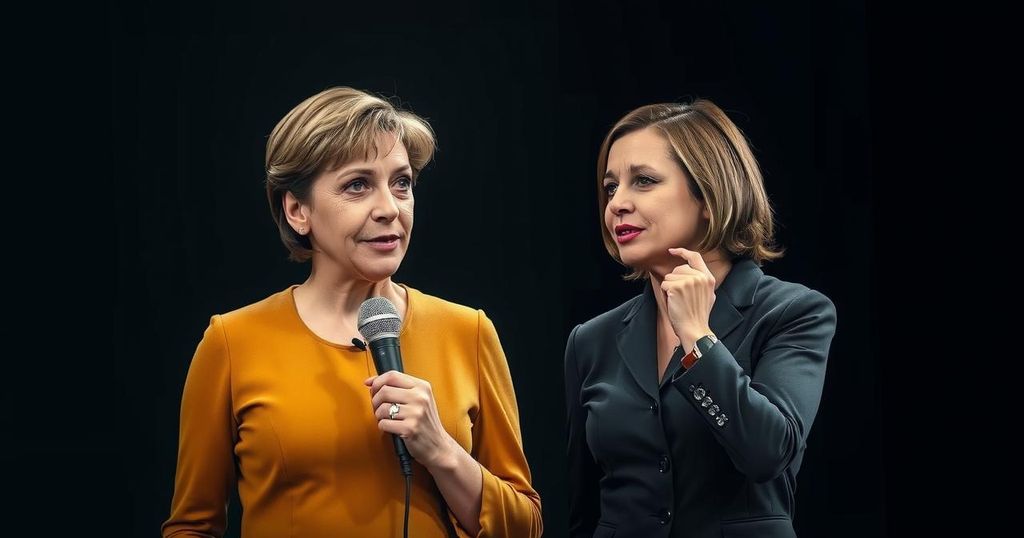Candidates for Germany’s 2025 Chancellor Election Revealed

Political parties in Germany have announced their candidates for the upcoming chancellor elections set for February 23, 2025. Key candidates include Olaf Scholz (SPD), Friedrich Merz (CDU), Robert Habeck (Greens), Alice Weidel (AfD), Christian Lindner (FDP), Sahra Wagenknecht (BSW), and Jan van Aken (Left Party), each representing distinct ideas and backgrounds.
As Germany prepares for the snap elections on February 23, the major political parties have unveiled their leading candidates for chancellor. Each candidate reflects a distinct political ideology and background, contributing to the diverse landscape of the upcoming election.
Olaf Scholz, born in 1958 and representing the Social Democratic Party (SPD), emphasizes his pragmatic approach shaped by an extensive political career that includes roles such as mayor of Hamburg and chancellor. Despite these credentials, he faces challenges regarding public perception and polling.
Friedrich Merz, the Christian Democratic Union (CDU) candidate and born in 1955, stands out as the oldest contender, bringing a wealth of business experience and staunch conservative values to his campaign. His long-standing involvement in both private enterprise and politics lends him a unique perspective.
Representing the Greens, Robert Habeck, born in 1969, projects an approachable image that contrasts with traditional political styles. His earlier life as a philosopher and author informs his candidacy, and he has proven adept at communicating government policies in relatable terms.
Alice Weidel, born in 1979 and co-chair of the far-right Alternative for Germany (AfD), is known for her provocative rhetoric and economic expertise. Her views express skepticism toward the European Union and NATO, alongside strong anti-immigration sentiments.
Christian Lindner, also born in 1979, heads the Free Democratic Party (FDP) as finance minister and emerged as a key player in recent political developments, considering the collapse of Scholz’s Cabinet. Recognized for his modern campaigning tactics, he has built a reputation as a dynamic leader in his party.
Sahra Wagenknecht, born in 1969 and associated with the BSW, mixes populism with criticism of established politics while advocating conservative social policies. Her economic perspectives are complemented by skepticism toward climate science and NATO.
Jan van Aken, the Left Party candidate born in 1961, has relevant experience in biology and international diplomacy. His previous tenure in the Bundestag and current leadership role reflect his commitment to maintaining the party’s relevance in the forthcoming elections.
The 2025 German federal elections are scheduled for February 23, 2025, providing a platform for various political parties to position their candidates for chancellor. As the date approaches, parties are actively campaigning and presenting their visions to the electorate amid a backdrop of political and economic complexities. The candidates span a range of political ideologies, appealing to different segments of the population and setting the stage for a competitive election.
With the candidates now established, the election cycle leading to the February 23 snap elections not only highlights diverse political philosophies but also underscores the importance of each candidate’s professional journey and public reception. Voters will have the opportunity to evaluate these leaders based on their past performances, political ideologies, and ability to address pressing national issues.
Original Source: www.dw.com







